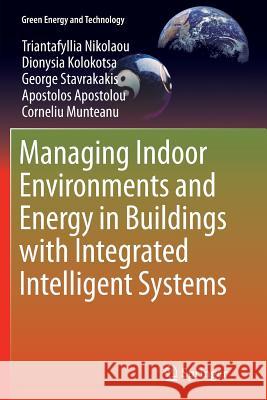Managing Indoor Environments and Energy in Buildings with Integrated Intelligent Systems » książka
topmenu
Managing Indoor Environments and Energy in Buildings with Integrated Intelligent Systems
ISBN-13: 9783319365855 / Angielski / Miękka / 2016 / 261 str.
Managing Indoor Environments and Energy in Buildings with Integrated Intelligent Systems
ISBN-13: 9783319365855 / Angielski / Miękka / 2016 / 261 str.
cena 385,52 zł
(netto: 367,16 VAT: 5%)
Najniższa cena z 30 dni: 382,84 zł
(netto: 367,16 VAT: 5%)
Najniższa cena z 30 dni: 382,84 zł
Termin realizacji zamówienia:
ok. 20 dni roboczych.
ok. 20 dni roboczych.
Darmowa dostawa!
Kategorie:
Kategorie BISAC:
Wydawca:
Springer
Seria wydawnicza:
Język:
Angielski
ISBN-13:
9783319365855
Rok wydania:
2016
Wydanie:
Softcover Repri
Numer serii:
000355820
Ilość stron:
261
Waga:
0.39 kg
Wymiary:
23.39 x 15.6 x 1.47
Oprawa:
Miękka
Wolumenów:
01
Dodatkowe informacje:
Bibliografia
Wydanie ilustrowane
Wydanie ilustrowane











